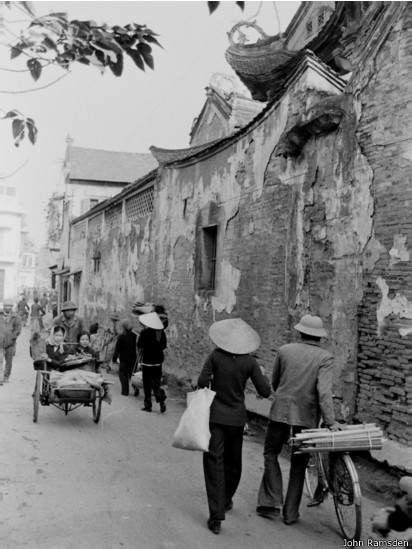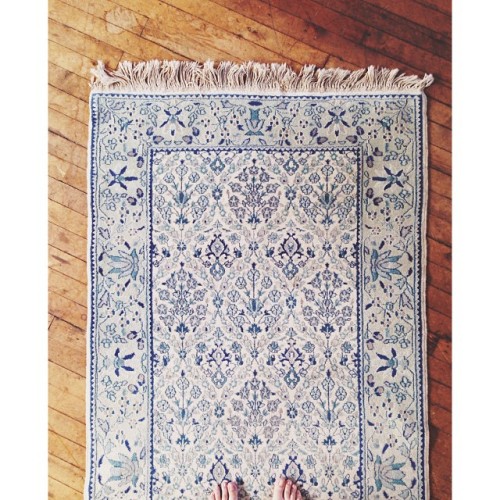A somehow irrelevant thought (to my elective here/Vietnam) but as I stumbled upon this
image, of a beautiful oriental rug, it reminded me of a story vaguely related to medicine. Hence I will write it down here.
I remember the first few weeks of starting clinical rotation, freshly landed into the busiest wards in a north London teaching hospital. Still learning how to take history properly within a certain time frame, I often found myself eventually diverging and chatting to patients who were longing for some company during their long stay in hospital. One day I was chatting to this lovely lady in her eighties (who is usually well until she tripped over at home and had a few bruises - the usual set of tests and scans were ordered ?mechanical fall. She was just waiting around and doing crosswords) when the occupation therapist came to tell her that they had a look around her house and recommended that she should add some railing to her toilet, (some other recommendations) and remove the carpet in her living room because it is a significant hazard. She mumbled and protested and was clearly upset. I forgot the rest of the story but I remembered her saying,
I might not be young and beautiful anymore but this is my living room and I will do anything to defend my rug!
We chuckled. Somehow I imagined her as a knight ferociously defending her rug against a torrent of army (which may be known as medical advice) - with the kind of grace and tenacity that only the wise and experienced possess. I don't even know if this counts as any kind of meaningful reflection or contemplation anymore but stories like these are the things that I really cherish about the vocation, of healing and caring for maladies and sufferings. Triumphant and humbling moment like this that lights up the journey, that consoles and reminds you that in front of illnesses all souls are equal, vulnerable but capable of even greater loving and feeling.
I cannot help but feel extremely blessed and lucky that I have come this far, and just so close to having the responsibilities and being trusted as a doctor, and surrrounded by people who know how this feels too.
xx












